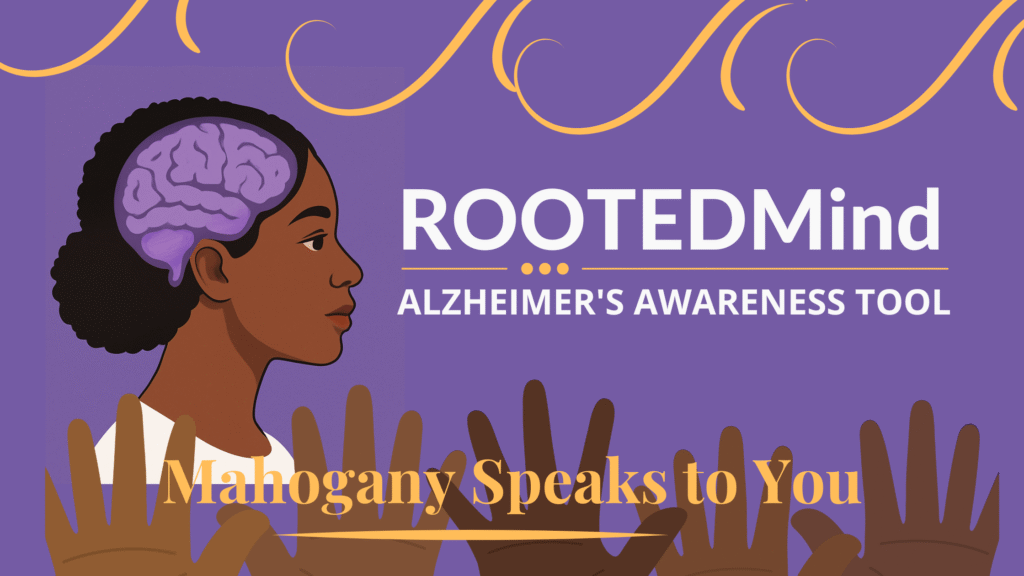
What You Should Know
by Tara E. l Updated May 26, 2025
According to the Alzheimer’s Association, Alzheimer’s Disease in the African American community among African Americans aged 65 and older is estimated to be at 14%. This rate is significantly higher than that of about 10% of white Americans aged 65 and older. This discrepancy highlights the increased prevalence and risk among African American elders.
Alzheimer’s disease is a brain disorder that slowly destroys memory and thinking skills. Over time, it can be hard to carry out even the simplest tasks. In the United States, Alzheimer’s disease is more common among African Americans than among white Americans. This article aims to shed light on the unique aspects of Alzheimer’s disease within the African American community, including facts, statistics, risk factors, and treatment options, with specific insights into differences between men and women.
What is Alzheimer’s Disease?
Alzheimer’s disease is a type of dementia that affects memory, thinking, and behavior. The symptoms eventually grow severe enough to interfere with daily tasks. It is not a normal part of aging, although the greatest known risk factor is increasing age, and the majority of people with Alzheimer’s are 65 and older.
Why Is This Our Business? A Look at the Numbers
Here’s the deal: studies show that Black Americans are about twice as likely to develop Alzheimer’s or other dementias compared to white Americans. And since women in general are more likely to get Alzheimer’s than men, that means we, as Black women, are at an even higher risk. Some research even says we’re in an “exceptionally high-risk group.”
It’s not about scaring anyone, but about understanding what we’re facing. It’s thought that around 1 in 5 African Americans over the age of 70 are living with Alzheimer’s or related dementias, and these numbers could go up in the future.
What Makes Us More at Risk? It’s Complicated, Sis.
Scientists are still figuring out all the reasons why Alzheimer’s affects our community more, but here’s what we’re learning:
- Our Health Matters: Conditions like high blood pressure, diabetes, heart disease, and high cholesterol are more common in our community. These issues don’t just affect our bodies; they can also harm our brain health and increase the risk of Alzheimer’s. Sometimes, these conditions are linked to “vascular dementia,” which is a type of dementia related to blood flow problems in the brain.
- Stress is Real: Let’s be honest, we often carry a heavy load. Dealing with lifelong stress from things like racism and discrimination can take a toll on our bodies and brains. This “allostatic load,” or the wear and tear of chronic stress, has been linked to a higher risk.
- Where We Live: Believe it or not, our environment can play a part. Some studies show that living in areas with more air pollution might increase Alzheimer’s risk, and unfortunately, our communities are sometimes located in places with higher pollution levels.
- Our Genes: Our family history can play a role. Scientists are finding some specific genes that might be more common in people of African ancestry that could be linked to Alzheimer’s. This research is still growing, but it’s an important piece of the puzzle.
- Being a Mom: This one is pretty new. Some research from 2024 suggests that African American women who have given birth to three or more children might have a slightly higher risk. Scientists think it might be connected to changes in hormones like estrogen during and after pregnancies. More research is needed here, but it’s something to be aware of.
- The Caregiving Journey: We are the queens of caring for others. Many African American women are caregivers for family members with Alzheimer’s. While this comes from a place of love, the stress of caregiving can impact our own health, including our heart health, which is tied to brain health.
Knowing the Signs: More Than Just “Senior Moments”
It’s normal to forget a name here and there as we get older. But Alzheimer’s is different. And sometimes, the signs might show up a bit differently for us, or we might not seek help as quickly.
Some common early signs include:
- Memory loss that messes with daily life (like forgetting important dates or asking the same questions over and over).
- Trouble planning or solving problems.
- Difficulty completing familiar tasks at home or work.
- Getting confused about time or place.
- Problems with words when speaking or writing.
- Misplacing things and not being able to find them.
- Changes in judgment or decision-making.
- Pulling back from work or social activities.
- Changes in mood or personality, like becoming more confused, suspicious, depressed, fearful, or anxious.
Some studies have noticed that when Black patients finally get a diagnosis, they might be showing more severe symptoms like delusions (believing things that aren’t true), hallucinations (seeing or hearing things that aren’t there), or significant changes in behavior. This might mean that we’re not getting diagnosed as early as we could be. Sometimes, we might think these memory changes are just a normal part of getting older, but it’s important to check it out.
Challenges We Face in Getting Help
It’s not always easy for us to get the help we need.
- Trust: Past experiences can make it hard to trust doctors or the healthcare system.
- Access: Getting to see specialists or finding good quality care can be tough.
- Awareness: Sometimes, we might not recognize the early signs, or we might be hesitant to talk about them. Some folks feel it’s insulting if a doctor suggests a thinking skills test.
- Diagnosis: The tests used to check for Alzheimer’s were often created based on studies of white people, so they might not always be as accurate for us.
Because of these things, African Americans are often diagnosed later in the disease, when it’s more advanced.
Taking Charge of Our Brain Health: What Can We Do?
Alright, now for the good news! There are things we can do to help keep our brains healthy and potentially lower our risk or delay the onset of Alzheimer’s. Think of it as self-care for your mind:
- Move Your Body: Regular exercise is great for your brain! Aim for at least 30 minutes most days of the week. Dancing, walking, gardening – whatever gets you moving.
- Eat for Your Brain: A heart-healthy diet is a brain-healthy diet. Think lots of fruits, veggies, whole grains, lean protein, and healthy fats (like those in nuts and avocados). If you have high blood pressure, a diet like DASH (Dietary Approaches to Stop Hypertension) can be really helpful.
- Stay Sharp: Keep your mind active. Read, do puzzles, learn a new skill, play games, or stay socially connected with friends and family.
- Get Your Zzz’s: Good sleep is super important for brain health. Try to get 7-8 hours of quality sleep each night.
- Manage Stress: Find healthy ways to cope with stress. This could be prayer, meditation, yoga, spending time in nature, or talking to a friend or counselor.
- Check Your Numbers: Keep an eye on your blood pressure, cholesterol, and blood sugar. Work with your doctor to manage these conditions if they are high.
- Talk to Your Doctor: If you notice changes in your memory or thinking, or if you’re concerned about your risk, don’t wait. Talk to a doctor you trust. Ask questions. Getting checked out early can make a big difference. It can help rule out other things that might be causing symptoms (like vitamin deficiencies or medication side effects) and get you on the right path if it is Alzheimer’s.
- Be Your Own Advocate: Don’t be afraid to speak up for your health. If something doesn’t feel right, say so. If you want a second opinion, get one.
Support for You and Your Loved Ones
You are not alone in this. There are resources out there to help:
- The Alzheimer’s Association (alz.org): They have tons of information, support groups, and a 24/7 helpline (800.272.3900). They offer resources specifically for the African American community.
- National Institute on Aging (nia.nih.gov): A great source for reliable information on Alzheimer’s disease and brain health.
- Local Community Groups: Look for health programs or support groups in your church or community center.
The Future is Hopeful
Researchers are working hard to better understand Alzheimer’s, especially how it affects our community. More African American women are participating in research studies, which is so important! This helps ensure that new treatments and prevention strategies will work for us, too.
Our health is our wealth. By understanding our risks, taking steps to protect our brains, and supporting each other, we can face the challenge of Alzheimer’s disease with strength and hope.
References
- Alzheimer’s Association. (2022). Alzheimer’s Disease Facts and Figures. Available at: Alzheimer’s Association
- National Institute on Aging. (2022). Alzheimer’s Disease in People of African Descent. Available at: National Institute on AgingHealth and Human Services Office of Minority Health. (2022). Alzheimer’s Disease and African Americans.Available at: Minority Health

ROOTEDMind: Early Signs & Support Tool
Welcome! This tool helps you track possible signs of Alzheimer’s in yourself or a loved one. It’s not a diagnosis, but it can help you know what steps to take next.
1. Select Symptoms You’ve Noticed:
2. Duration of Symptoms:
3. Notes (optional):
Disclaimer: This tool is not intended to diagnose or treat Alzheimer’s. Always seek the advice of your physician or healthcare provider with any questions or concerns.
More from Mahogany Speaks to You

Best Exercises to Lower Blood Pressure

Migraine Headaches in Black Women
Read more….

Lupus in African American Women
Sign Up for Our Newsletter
